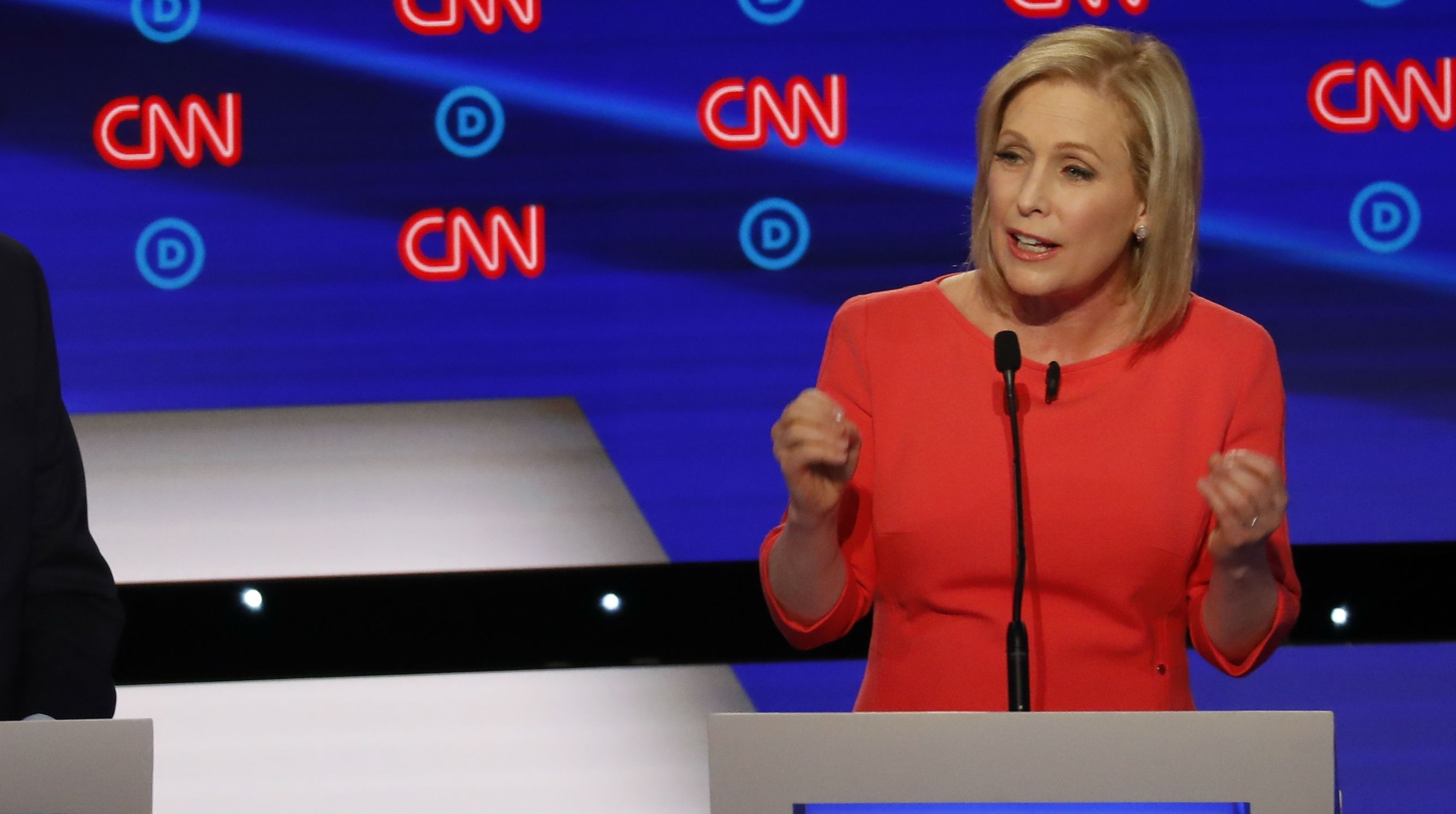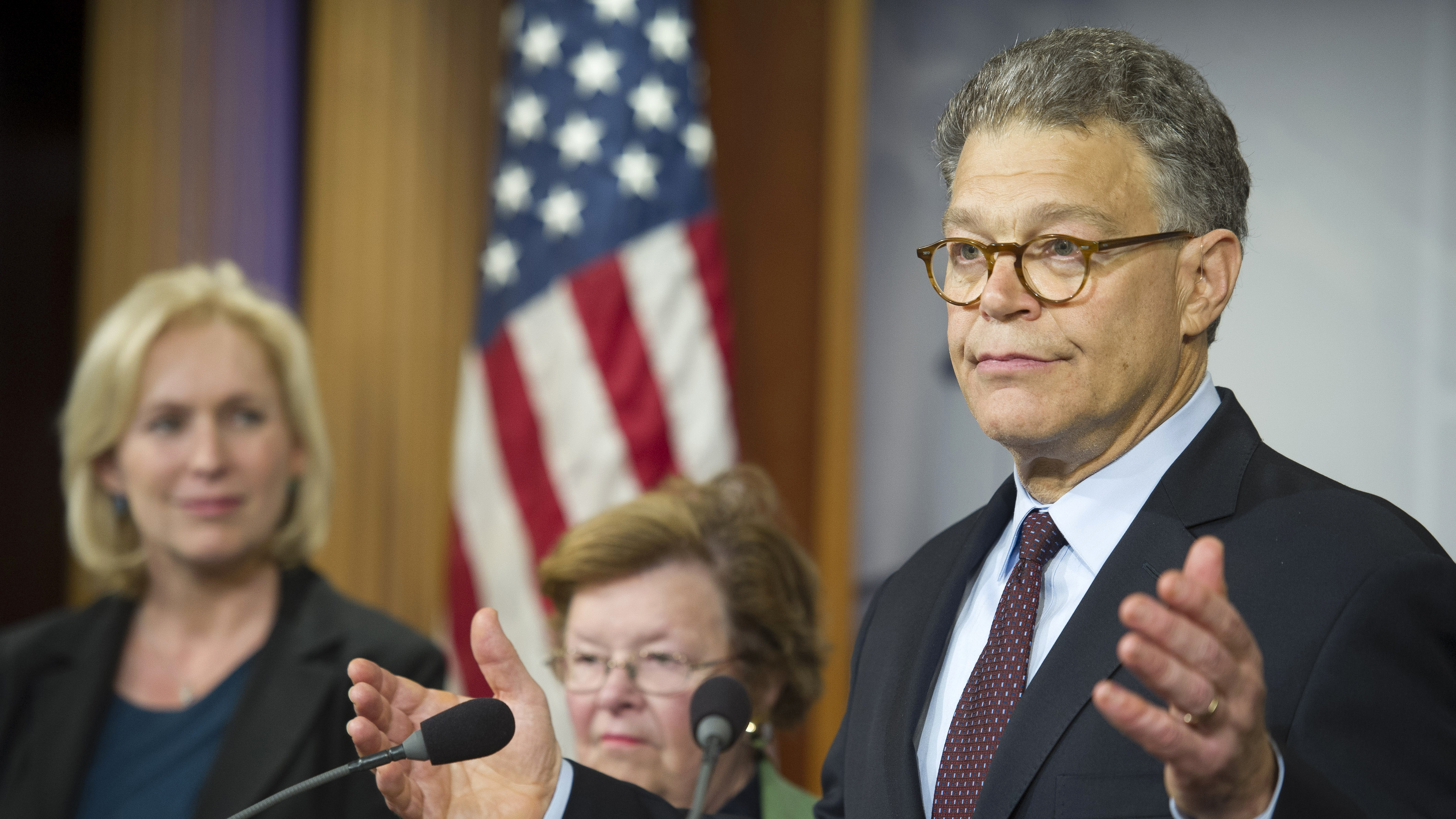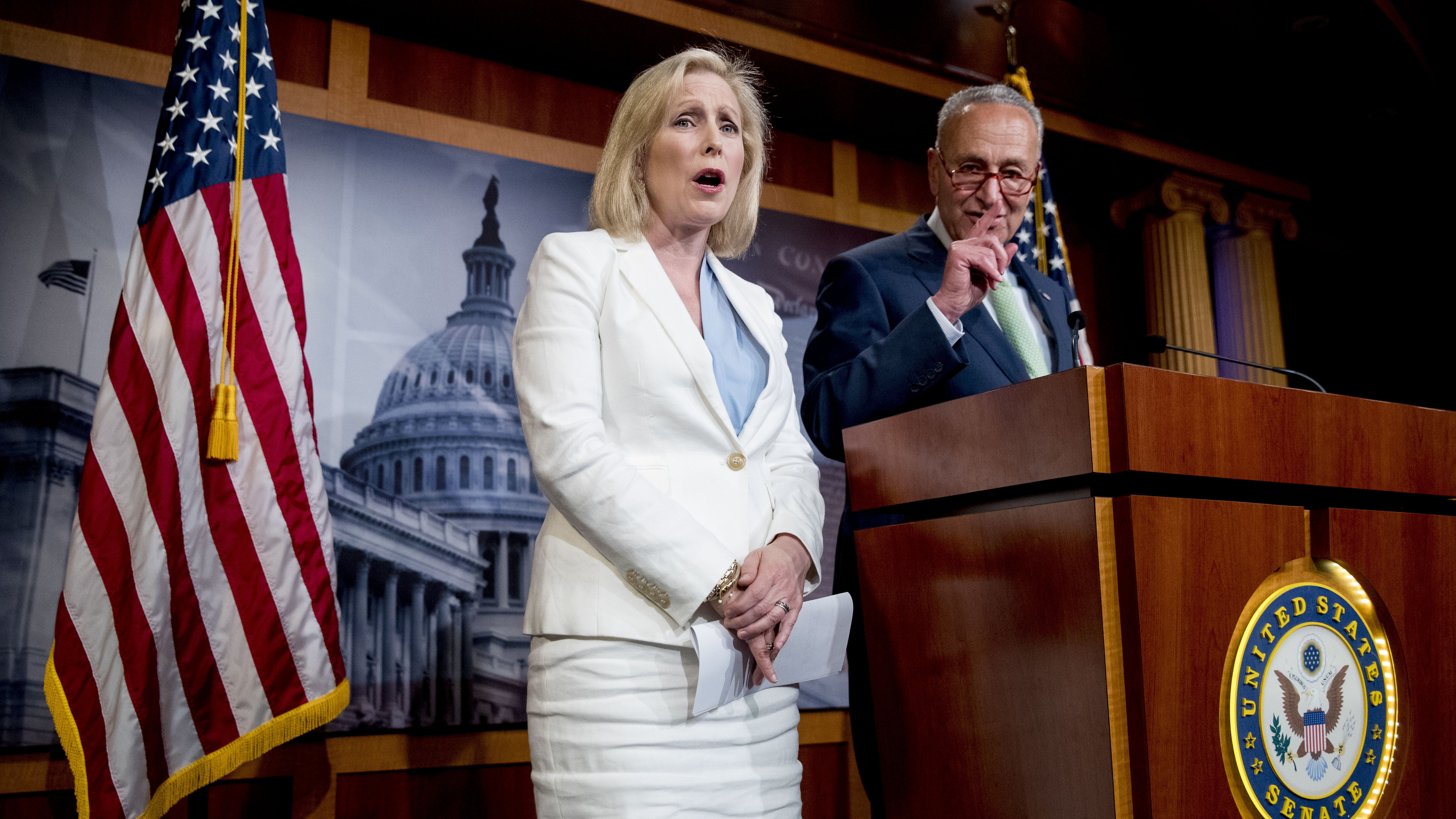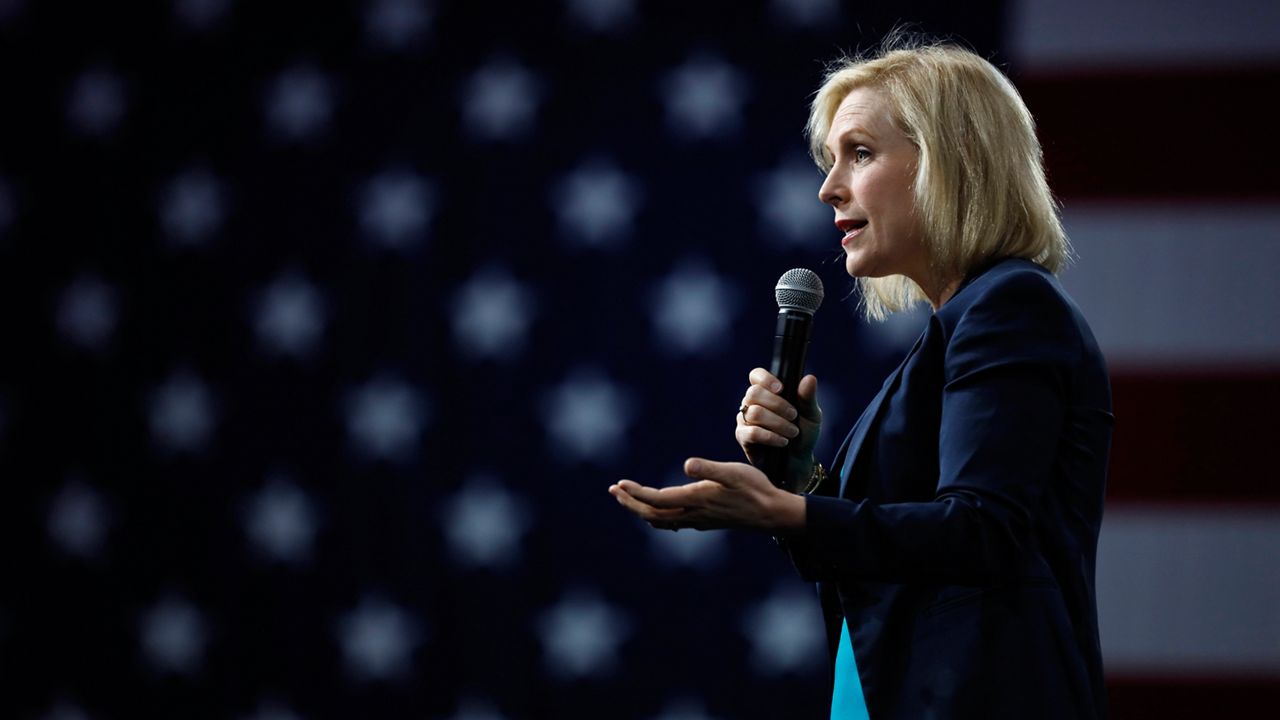U.S. Sen. Kirsten Gillibrand ended her bid for the presidency on Wednesday after it was all but certain she would not qualify for the next televised debate on Sept. 12.
Gillibrand in a video on Twitter pledged to help unite the Democratic Party to defeat President Donald Trump next year.
Here are four takeaways from Gillibrand’s campaign:

1. The Flip-Flops Hurt
Democrats have a long memory. And Sen. Kirsten Gillibrand’s record in office stretches back into the middle part of the last decade. At the time, she gained a measure of stardom in 2006 when she unseated Republican Rep. John Sweeney to win a battleground upstate New York House district and helped to turn the chamber blue, handing the speakership to Nancy Pelosi for the first time.
In 2008, Gillibrand handily won re-election, defeating Republican Sandy Treadwell to hold a rural and exurban district for the party that had been drawn for a GOP officeholder.
In office, Gillibrand held moderate-to-conservative stances on guns and immigration, positions that shifted after Gov. David Paterson selected her to replace Hillary Clinton in the U.S. Senate. Gillibrand suddenly had a very different constituency.
As a senator and one of the few statewide elected officials from outside the geographic center of gravity that is New York City, Gillibrand worked to bolster ties with the state’s political powerbrokers. Her stances on guns and immigration changed over the years to reflect the broader and more liberal constituency.
She proved to be a prodigious fundraiser and was able to turn aside rivals for the seat from both parties. Remember when former Rep. Harold Ford considered running against her?
Secure in office, Gillibrand began embracing issues like reforming sexual assault investigation policy in the military and combating sexual harassment, while also helping fundraise for Democratic women.
But the record of Gillibrand as a “blue dog” Democrat during her term and a half in the House was still there. She had opposed driver’s licenses for undocumented immigrants. She had kept a gun under her bed. Voters like consistency and having a long record doesn’t help.

2. The Franken Factor
Gillibrand was a prominent voice calling for the resignation of Sen. Al Franken after he was accused by multiple women of sexual harassment and inappropriate touching. She wasn’t the only senator to do so, and as The New Yorker recently revealed, the final shove came from the state’s senior senator, Majority Leader Chuck Schumer.
But the narrative, perhaps unfairly, had taken hold that Gillibrand was willing throw a friend under the bus. Some Democratic voters believe Franken was unfairly railroaded, especially compared to the more serious sexual assault allegations facing President Donald Trump.
Gillibrand herself noted women were blamed for Franken’s demise when really the only person to blame was the Minnesota Democrat himself.
The party is rapidly diversifying and it’s hard to imagine a woman not making the ticket next year.
But the societal reckoning surrounding the #MeToo movement could have, and likely should be, a centerpiece of the presidential campaign. Gillibrand, however, could not benefit from a record of highlighting the injustices surrounding the issue.

3. Being From New York Doesn’t Help
New York has a lot of outsized personalities. One of Gillibrand’s early challenges in office was overcoming the better-known men surrounding her on the statewide stage like Andrew Cuomo and Schumer.
But the being from New York, home to the nation’s largest media market and many of its most prominent journalists, can have its advantages when trying to build a national profile as well as raise money from some of the richest people on the planet who call the state home.
None of that has proven to be an advantage for either Gillibrand or Mayor Bill de Blasio of New York City.
Fundraising from the wealthy elite is increasingly seen as a liability in a party as candidates like Bernie Sanders and Elizabeth Warren touting their broad small-donor base (this is yet to effect candidates like former Vice President Joe Biden).
And, instead of the U.S. senator with a decade-long career in the chamber or a two-term mayor of a major city, it’s Schenectady native Andrew Yang who is polling better.

4. Getting Out Now May Be Good
De Blasio’s campaign is pressing on out west this week. Gillibrand won’t be a zombie candidate, however.
Yes, ending a campaign after only eight months and failing to register in polls is a disappointment. Gillibrand frankly acknowledged in the video released Wednesday that it wasn’t her time.
Recognizing the realities of her standing in the race can’t hurt her with Democrats — candidates or voters themselves — as she makes a bid for unity to defeat the president next year.



